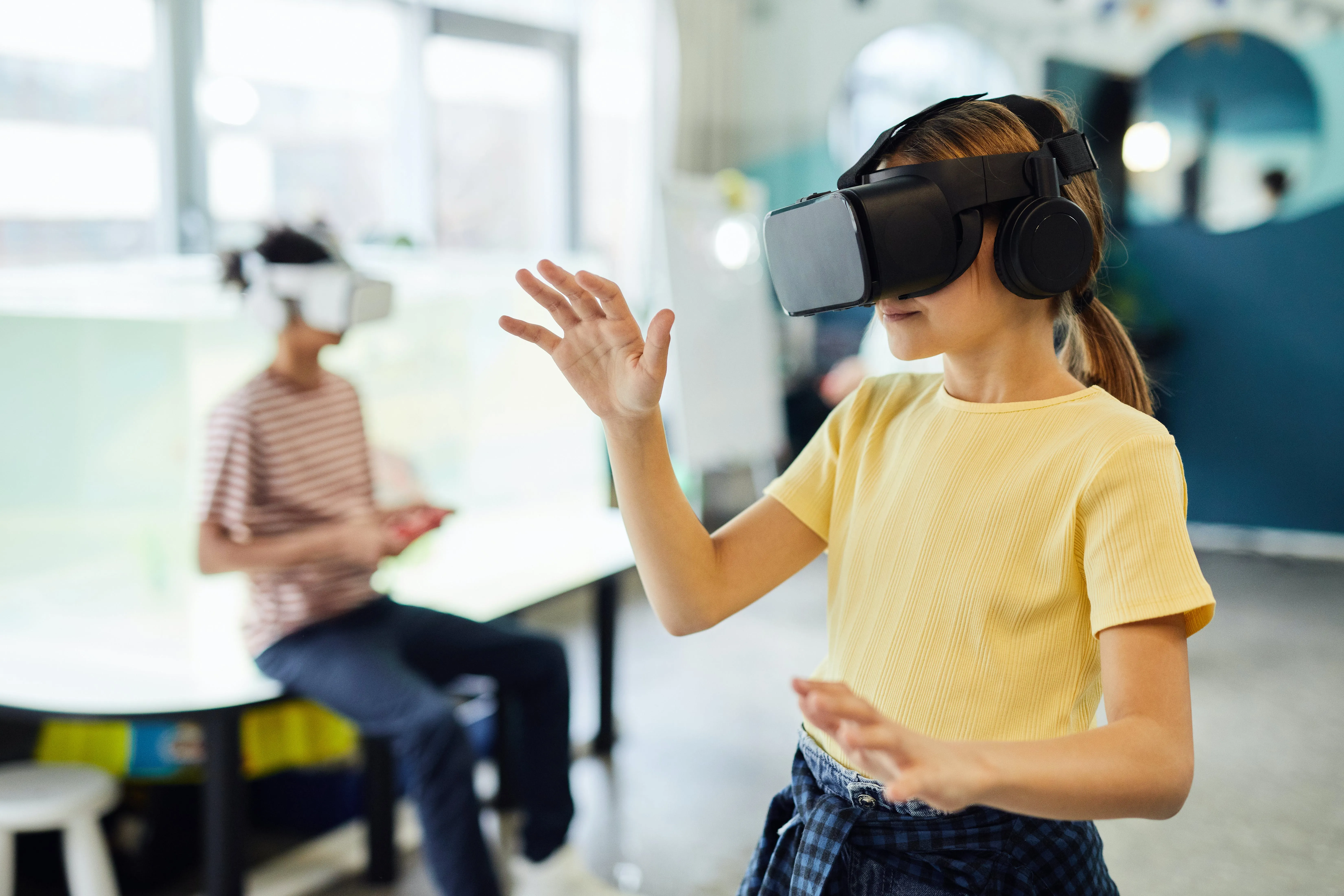Virtual Reality Classrooms: The Future of Education?
Education has come a long way from the days of chalkboards and textbooks. With the advent of technology, classrooms have transformed into dynamic learning environments where students can engage with digital content, collaborate online, and explore virtual worlds. One of the most exciting developments on the horizon is virtual reality (VR) classrooms. But are they the future of education? Let's dive in.

A Glimpse into the Future
As a lifelong advocate for education and a tech enthusiast, the idea of VR classrooms has always intrigued me. It's akin to stepping into a sci-fi novel where students don VR headsets, and suddenly, a world of immersive learning unfolds before them.
The Promise of VR Education
Virtual reality classrooms promise a host of benefits. They can transport students to historical events, simulate complex scientific experiments, and provide hands-on training in various professions—all from the comfort of their homes or schools.
Personal Insight: Exploring History
I vividly remember struggling to comprehend historical events during my school days. A vr classroom could have taken me to those moments, allowing me to witness history firsthand. Imagine standing in ancient Rome or on the moon's surface as Neil Armstrong took his historic step.
Overcoming Physical Barriers
One of the significant advantages of VR education is its ability to break down physical barriers. Students from diverse geographical locations can come together in a shared virtual space, fostering global collaboration and cultural exchange.
Personal Anecdote: Bridging Continents
I once had the opportunity to collaborate on a project with students from different countries. Despite the geographical distances, technology brought us together. VR classrooms could take this to a whole new level, bridging continents and creating a truly global classroom.
Tailored Learning Experiences
In a traditional classroom, teachers often face the challenge of catering to various learning styles. VR classrooms, however, can offer personalized learning experiences. Imagine a math lesson where each student receives customized exercises based on their proficiency level, progressing at their own pace.
Personal Reflection: Different Strokes for Different Folks
We all have unique ways of absorbing information. For me, visual learning has always been the most effective. VR education has the potential to tap into these individual preferences, making learning more enjoyable and effective.
The Potential Pitfalls
While the concept of VR classrooms is exciting, it's crucial to acknowledge potential drawbacks. VR technology can be expensive, and not all schools or students may have access to the required hardware and software.
Personal Experience: Access to Technology
Growing up, I faced challenges accessing the latest technology due to financial constraints. It's a reminder that, for VR classrooms to truly be the future of education, we need to ensure equitable access for all students, regardless of their socio-economic backgrounds.
The Role of Educators
VR classrooms are not a replacement for teachers but rather a tool that can enhance their effectiveness. Teachers play a pivotal role in guiding students through virtual experiences, facilitating discussions, and providing context to the immersive content.
Personal Insight: The Teacher's Touch
I can still recall the teachers who made a significant impact on my life. Their guidance went beyond textbooks and lessons; it was about instilling a love for learning and critical thinking. In a VR classroom, the teacher's role as a mentor remains irreplaceable.
The Future Beckons
In conclusion, virtual reality classrooms have the potential to revolutionize education. They offer immersive, tailored learning experiences that can inspire students and bridge geographical divides. However, their success hinges on addressing accessibility issues and recognizing the indispensable role of educators.
As we step into this exciting future of education, let's remember that technology is a tool—a means to an end. The true essence of education lies in nurturing curious minds, fostering critical thinking, and preparing students to navigate the complexities of the world.

No comments:
Post a Comment